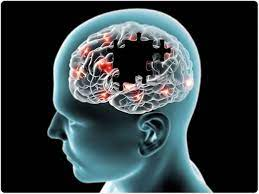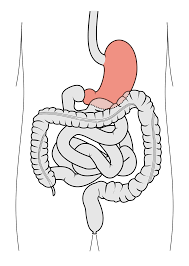Alzheimer’s
- Jun 6, 2022
- 3 min read
Alzheimer's is an illness that affects roughly 6.5 million people around the world with the vast majority of them being senior citizens above the age of 65. 1 in 3 seniors dies with Alzheimer's or another type of dementia. It is estimated that there will be 13 million more people infected with Alzheimer's by 2050. It is a disease that destroys the memory and personal life of the patient. In this article, the details of the disease known as Alzheimer's as well as its history and treatment options will be covered.

What is Alzheimer’s?
Alzheimer's is an incurable type of dementia which affects memory, thinking and personality. Alzheimer's is a progressive disease which means that it worsens over time. The first symptoms of Alzheimer's show up as short term memory loss and difficulty remembering newly acquired information. As Alzheimer's slowly progresses disorientation, mood changes, and confusion all start appearing. The patient starts having serious memory loss problems and as well as decreased motor skills. This all happens due to damage in the brain's neurons. Neurons are the nerve cells which control every action that the body takes. Each neuron works as a machine, receiving an input and generating an output. It is theorized that Alzheimer's damages part of the neuron, which leads to a collapse in the machine. A collapse in one neuron leads to problems in the brain and the collapse of billions of neurons leads to irreversible brain damage.
What is the history of Alzheimer’s?
Alzheimer's was found by the doctor Alois Alzheimer in 1906. He reported an abnormality and disease in the cerebral cortex, which is responsible for all types of cognition. He made this observation in a 50 year old woman who was admitted to him due to her suspicion of family members, inability to sleep, confusion, and memory disturbance. The disease was not taken very seriously and wasn’t really given any importance by anyone other than Kraepelin who named it Alzheimer’s disease. Alzheimer’s disease rose to prominence in the 1970s and since then, it is at the forefront of importance. Hundreds of studies have been conducted to try and find cures or ways to prevent it from developing. Progress has been made but no solid cure was discovered.
How is Alzheimer's Treated?
Alzheimer’s disease is an intricate disease that does not have a singular cure or treatment that stops it from spreading. After countless clinical trials, there have been a few breakthroughs in ways to stop and hinder the spread of Alzheimer's but nothing as definitive as a cure. For mild and moderate Alzheimer's, drugs that inhibit cholinesterase, a brain chemical that is important in cognition, are used to control symptoms related to cognition and behavior. For moderate to severe Alzheimer’s a medication known as memantine is used which lets the user retain their motor abilities for a few more months before having to completely rely on a caretaker. There are no medications that can cause symptoms to regress which makes Alzheimer's one of the most dangerous diseases.
Conclusion
In conclusion, Alzheimer's is a mental disorder that plagues over 6 million people. However, the world is conducting hundreds of clinical trials to find a cure to Alzheimer’s so that they can save hundreds of thousands of lives. The number of cases of Alzheimer's has increased over the course of the decade and it is speculated to increase even further. It is imperative that a cure to Alzheimer’s is found before even more elderly suffer and lose their mental capabilities.



Comments